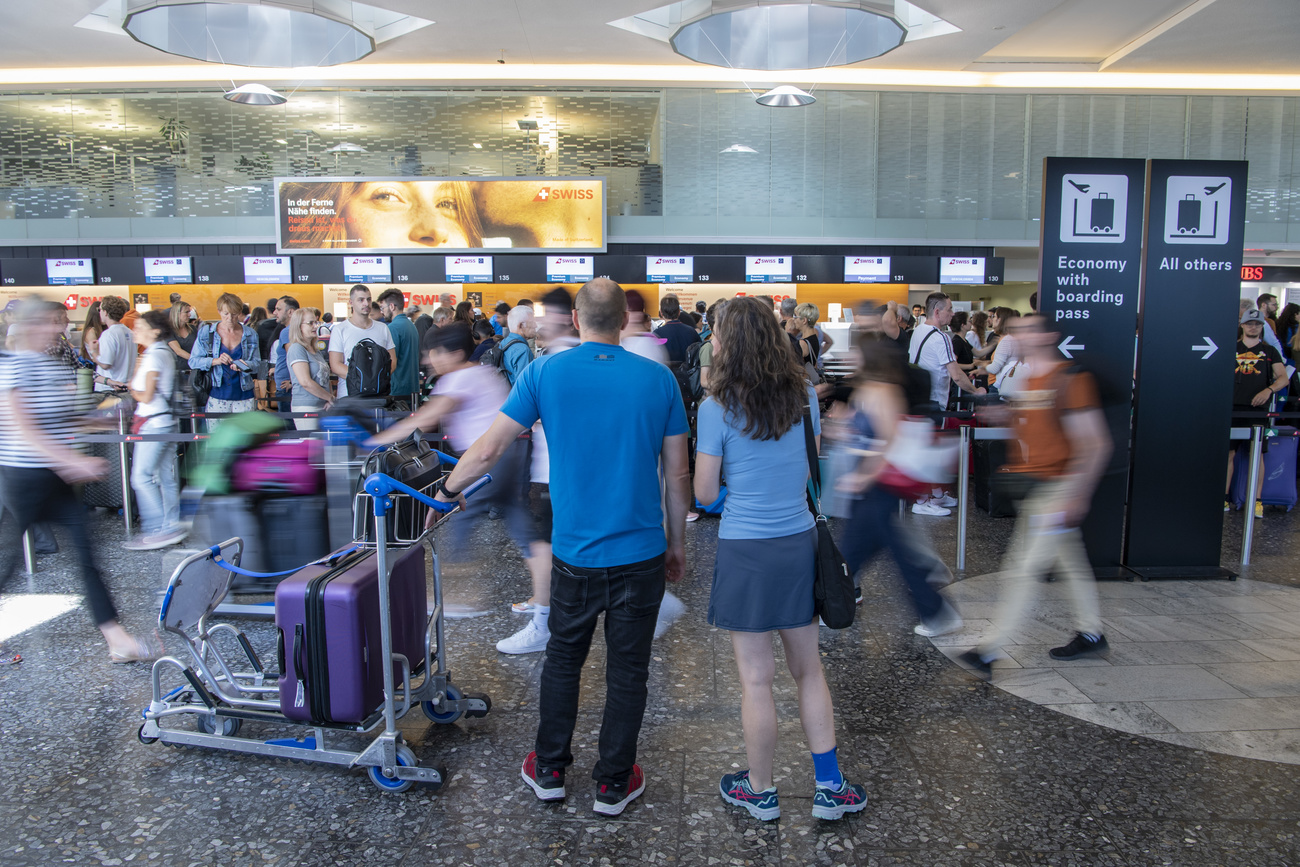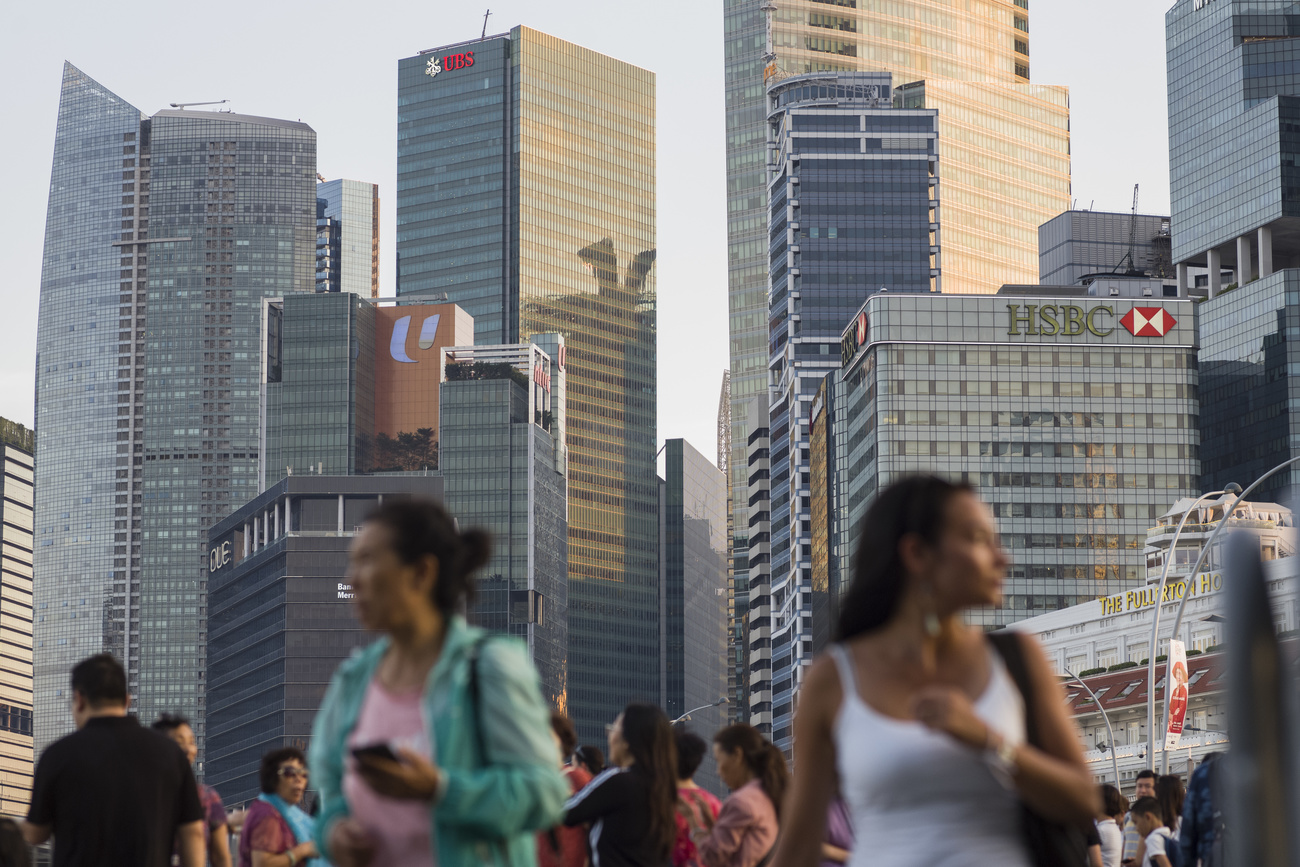Amnesty debates police violence

The Swiss branch of Amnesty International has been debating police brutality, ahead of human rights day on December 10.
Speakers at last week’s debate in Zurich included Nerys Lee, Amnesty International’s officer with special responsibility for Switzerland, and Jörg Schild, president of the intercantonal association of police chiefs. Lawyers and representatives of other human rights organisations were also present.
The debate began with a speech by Nerys Lee in which she was careful to point out that Switzerland was not being singled out as a country where police violence was worse than anywhere else.
“In fact Amnesty regularly receives reports of people being abused in police custody right across Western Europe,” said Lee.
“But the consistency of the allegations from Switzerland, and the wide variety of sources from which they come, including the United Nations Human Rights Commission and the Council of Europe, mean they must be taken seriously.”
Forcible deportations
Lee said Amnesty was especially concerned that two men had died recently in police custody in Switzerland. Both were in the process of being forcibly deported, and there have been allegations that their deaths may have been caused by the restraint methods used by the police.
Lee described incidents in which deportees had had tape put over their mouths and been strapped into wheel chairs prior to deportation. She also claimed some deportees were denied access to food, water and toilet facilities.
“Amnesty understands that the police have a difficult and often dangerous job,” said Lee.
“Nevertheless we would urge the Swiss authorities to ensure that each canton has an independent investigation procedure for complaints against the police, and we would like officers suspected of committing acts of violence to be suspended during the course of the investigation.”
The United Nations Human Rights Commission has also formally asked the Swiss government to introduce an independent complaints procedure, as well as to ensure that the legal rights of detainees are guaranteed.
Systematic harassment
While Amnesty International is especially concerned about the treatment of people in police custody, some lawyers in Switzerland claim the incidences of police abuse go much further.
Marcel Bosonnet, a Zurich lawyer who regularly represents people who claim they have been ill treated by the police, described what he claimed was a systematic pattern of harassment by police.
“Those most affected are young non-European males,” said Bosonnet. “A typical example is that such an individual will be stopped three or four times within a few hundred metres to have his identity checked. Each check takes several minutes, as the police verify his name and address with their central office.”
“If the individual ventures to ask why the checks are taking place,” Bosonnet continued, “the police very often respond by arresting him, taking him to the police station, strip searching him, and then releasing him without charge the next morning.”
Bosonnet added that the Swiss authorities had often shown an unwillingness to cooperate when he had tried to press charges.
Police violence
Swiss police were represented at the debate by Jörg Schild, who joked that he would do his best “to extricate my neck from the noose that has been placed round it”.
Schild said he welcomed the discussion about police violence, which he said had to be taken seriously.
“For my part I can assure you that I regret every single incidence of police violence. However I would insist that they are occasional incidents – to describe them as systematic is not correct.”
Schild said he believed one of the main problems facing the police was Switzerland’s federal system, which meant “our 26 cantons each have 26 sets of laws and 26 sets of procedures. This makes things very difficult.”
Complaints procedure
Schild pointed out that, in response to the UN Human Rights Commission’s request for an independent complaints procedure, the Swiss authorities had set up a working group which includes cantonal police forces and representatives from the federal justice department.
“I think we can achieve something,” he said. “What we want is greater unity of our penal code and of our procedures for those in custody.”
Nerys Lee welcomed the setting up of the working group, saying if the country does succeed in introducing independent investigation procedures it could serve as an example to other nations.
“Switzerland really could provide the guidelines for other western European countries to follow,” said Lee.
“It’s not that we believe Switzerland and other western European countries have terrible records of police brutality. But Amnesty has a responsibility to remain vigilant about human rights at all times, and to make sure that international standards are upheld.
“We don’t want things to get worse, our goal is for human rights standards to get better.”

In compliance with the JTI standards
More: SWI swissinfo.ch certified by the Journalism Trust Initiative









You can find an overview of ongoing debates with our journalists here . Please join us!
If you want to start a conversation about a topic raised in this article or want to report factual errors, email us at english@swissinfo.ch.